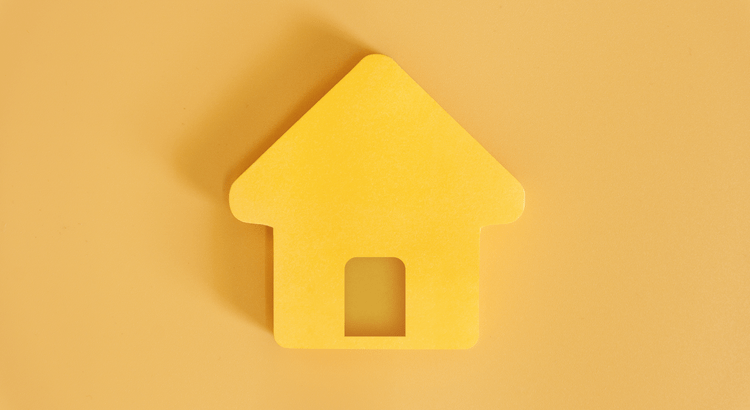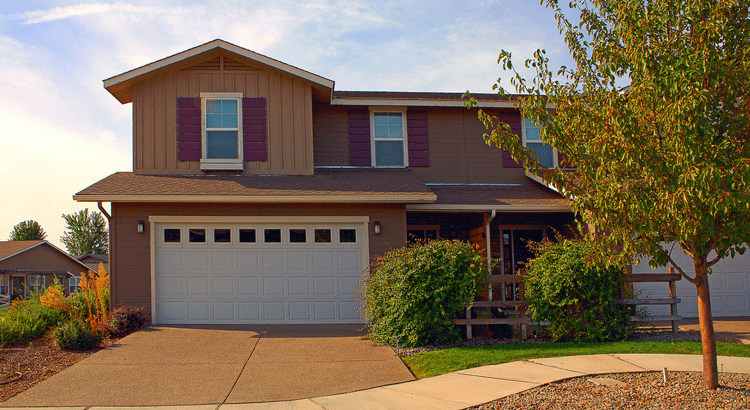Real Estate Blogs

Pre-Approval Isn’t Commitment – It’s Clarity
Pre-Approval Isn’t Commitment – It’s Clarity
Pre-Approval Isn’t Commitment – It’s Clarity If buying a home is on your radar – even if it’s more of a someday plan than a right now plan – getting pre-approved early is still one of the smartest moves you can make. Why? Because, like anything in life, the right prep work makes things clearer. Th
MORE
What You Can Do When Mortgage Rates Are a Moving Target
What You Can Do When Mortgage Rates Are a Moving Target
What You Can Do When Mortgage Rates Are a Moving Target Have you seen where mortgage rates have been lately? One day they go down a little. The next day, they go back up again. It can feel confusing and even frustrating if you’re trying to decide whether now’s a good time to buy a home. Take a loo
MOREWhat’s Your House Worth Now? The Answer May Surprise You
What’s Your House Worth Now? The Answer May Surprise You
What’s Your House Worth Now? The Answer May Surprise You Let’s talk about something you might not check nearly as often as your bank account – and that’s how much your home is worth. But when it comes to your financial situation, it’s an important thing to remember. When’s the last time you had a
MORE
Paused Your Moving Plans? Here’s Why It’s Time To Hit Play Again
Paused Your Moving Plans? Here’s Why It’s Time To Hit Play Again
Paused Your Moving Plans? Here’s Why It’s Time To Hit Play Again It’s not really a surprise that 70% of buyers paused their home search last year. Maybe you were one of them. And if so, no judgment. Conditions just weren’t great. Inventory was too low, prices were too high, and mortgage rates were
MORE
Are Investors Actually Buying Up All the Homes?
Are Investors Actually Buying Up All the Homes?
Are Investors Actually Buying Up All the Homes? Are you trying to buy a home but you feel like you’re up against deep-pocketed Wall Street investors snatching up everything in sight? Many people believe mega investors are driving up prices and buying up all the homes for sale, and that’s making i
MORE
How To Buy a Home Without Waiting for Lower Rates
How To Buy a Home Without Waiting for Lower Rates
How To Buy a Home Without Waiting for Lower Rates Many people are hoping mortgage rates will come down before they buy a home. But will that actually happen? According to the latest forecasts, experts say rates will decline, but not by as much as a lot of people want. The good news? Even if they
MORE
Seller Concessions: A Smart Strategy To Get Your House Sold
Seller Concessions: A Smart Strategy To Get Your House Sold
Seller Concessions: A Smart Strategy To Get Your House Sold For the past few years, it’s been mostly a seller’s market. But dynamics are shifting as the number of homes for sale grows. And that means that the market is balancing out a bit. As a result, some sellers are finding they need to be mor
MORE
Why More People Are Buying Multi-Generational Homes Today
Why More People Are Buying Multi-Generational Homes Today
Why More People Are Buying Multi-Generational Homes Today Today, 17% of homebuyers are choosing multi-generational homes — that’s when you buy a house with your parents, adult children, or even distant relatives. What makes that noteworthy is that 17% is actually the highest level ever recorded by
MORE
When Is the Perfect Time To Move?
When Is the Perfect Time To Move?
When Is the Perfect Time To Move? It’s easy to get caught up in the idea of waiting for the perfect moment to make your move – especially in today’s market. Maybe you’re holding out and hoping mortgage rates will drop, or that home prices will fall. But here’s what you need to realize: trying to t
MORE
The Truth About Credit Scores and Buying a Home
The Truth About Credit Scores and Buying a Home
The Truth About Credit Scores and Buying a Home Your credit score plays a big role in the homebuying process. It’s one of the key factors lenders look at to determine which loan options you qualify for and what your terms might be. But there’s a myth about credit scores that may be holding some bu
MORE
How Much Home Equity Have You Gained? The Answer Might Surprise You
How Much Home Equity Have You Gained? The Answer Might Surprise You
How Much Home Equity Have You Gained? The Answer Might Surprise You Have you ever stopped to think about how much wealth you’ve built up just from being a homeowner? As home values rise, so does your net worth. And, if you’ve been in your house for a few years (or longer), there’s a good chance yo
MORE
New Year, New Home: How To Make It Happen in 2025
New Year, New Home: How To Make It Happen in 2025
New Year, New Home: How To Make It Happen in 2025 This is the time when a lot of people take a moment to reflect and set their goals for this year. And as you picture what you want your 2025 to look like, one thing that may pop into your mind is the vision of you in a new home. But how do you get
MORE
Two Resources That Can Help You Buy a Home Right Now
Two Resources That Can Help You Buy a Home Right Now
Two Resources That Can Help You Buy a Home Right Now A recent report from Realtor.com says 20% of Americans don’t think homeownership is achievable. Maybe you feel the same way. With inflation driving up day-to-day expenses, saving enough to buy your first home is more of a challenge. But here’s t
MORE
Only an Expert Agent Can Give You an Accurate Value of Your Home
Only an Expert Agent Can Give You an Accurate Value of Your Home
Only an Expert Agent Can Give You an Accurate Value of Your Home In today’s digital age, it’s tempting to rely on automated tools for everything — including figuring out how much your house is worth. But be careful. The automated estimates you’re seeing online often miss key details that affect th
MORE
The Biggest Perks of Buying a Home This Winter
The Biggest Perks of Buying a Home This Winter
The Biggest Perks of Buying a Home This Winter Waiting for perfect market conditions often means missing out. Because what you may not realize is, if you’re ready and able to buy, this time of year could actually give you an edge. Here’s why. As the weather cools down, the housing market can too –
MOREStruggling To Sell Your House? Read This.
Struggling To Sell Your House? Read This.
Struggling To Sell Your House? Read This. When you sell your house, ideally, you want it to go something like this: your house sells for top dollar, you get it sold quickly, and it all goes down without a hitch. But what many people don’t realize is that even in today's market where there are more
MORE
Don’t Miss Out on the Growing Number of Down Payment Assistance Programs
Don’t Miss Out on the Growing Number of Down Payment Assistance Programs
With rising home prices and volatile mortgage rates, it’s important you know about every resource that could help make buying a home possible. And one thing you’ll want to be aware of is just how much the number of down payment assistance (DPA) programs has grown lately. Take a look at the grap
MORE
Is Wall Street Really Buying All the Homes?
Is Wall Street Really Buying All the Homes?
Let’s be real – buying a home right now is tough. You’re scrolling through listings, rushing to open houses, and maybe even losing out to more competitive offers. Somewhere along the way, you might’ve heard the reason it’s so hard to find a home is because big Wall Street investors are swooping
MORE
Don’t Let These Two Concerns Hold You Back from Selling Your House
Don’t Let These Two Concerns Hold You Back from Selling Your House
If you’re debating whether or not you want to sell right now, it might be because you’ve got some unanswered questions, like if moving really makes sense in today’s market. Maybe you’re wondering if it’s even a good idea to move right now. Or you’re stressed because you think you won't find a h
MORE
How Co-Buying a Home Helps with Affordability Today
How Co-Buying a Home Helps with Affordability Today
Buying a home in today’s market can feel like an uphill battle – especially with home prices and mortgage rates putting pressure on your budget. If you’re feeling stuck, co-buying could be one way to help you get your foot in the door. Freddie Mac says: “If you are an aspiring homeowner, buying
MORE
Should You Sell Your House or Rent It Out?
Should You Sell Your House or Rent It Out?
When you’re ready to move, figuring out what to do with your house is a big decision. And today, more homeowners are considering renting their home instead of selling it. Recent data from Zillow shows about two-thirds (66%) of sellers thought about renting their home before listing, with nearly
MORE
More Homes, Slower Price Growth – What It Means for You as a Buyer
More Homes, Slower Price Growth – What It Means for You as a Buyer
There are more homes on the market right now than there have been in years – and that could be a game changer for you if you’re ready to buy. Let’s look at two reasons why. You Have More Options To Choose From An article from Realtor.com helps explain just how much the number of homes for sale
MORE
What’s Motivating Homeowners To Move Right Now
What’s Motivating Homeowners To Move Right Now
Over the past few years, some homeowners have decided to delay their move because they don’t want to sell and take on a higher mortgage rate on their next home. Maybe you’re thinking the same thing. And honestly, that’s no surprise. It’s a very common roadblock and is one of the biggest factors
MORE
How Long Will It Take To Sell Your House?
How Long Will It Take To Sell Your House?
How Long Will It Take To Sell Your House? As you’re getting ready to sell your house, one of the first questions you’re probably asking is, “how long is this going to take?” And that makes sense—you want to know what to expect. While every market is different, understanding what’s happening nation
MORE
Planning To Sell Your House in 2025? Start Prepping Now
Planning To Sell Your House in 2025? Start Prepping Now
Planning To Sell Your House in 2025? Start Prepping Now If your goal is to sell your house in 2025, now’s the time to start prepping. Even though it might seem like there’s plenty of time between now and the new year, you should get a head start on any updates or repairs you want to make now. As D
MORE
Why Your House Will Shine in Today’s Market
Why Your House Will Shine in Today’s Market
Why Your House Will Shine in Today’s Market Even though there are more homes available for sale than there were at this time last year, there are still more buyers than there are houses to choose from. So, know that if you’ve got moving on your mind, your house can really stand out. There are seve
MORE
What To Expect from Mortgage Rates and Home Prices in 2025
What To Expect from Mortgage Rates and Home Prices in 2025
What To Expect from Mortgage Rates and Home Prices in 2025 Curious about where the housing market is headed in 2025? The good news is that experts are offering some promising forecasts, especially when it comes to two key factors that directly affect your decisions: mortgage rates and home prices.
MORE
The Benefits of Using Your Equity To Make a Bigger Down Payment
The Benefits of Using Your Equity To Make a Bigger Down Payment
The Benefits of Using Your Equity To Make a Bigger Down Payment Did you know? Homeowners are often able to put more money down when they buy their next home. That’s because, once they sell, they can use the equity they have in their current house toward their next down payment. And it’s why as hom
MORE
Why Pre-Approval Should Be at the Top of Your Homebuying To-Do List
Why Pre-Approval Should Be at the Top of Your Homebuying To-Do List
Why Pre-Approval Should Be at the Top of Your Homebuying To-Do List Since the supply of homes for sale is growing and mortgage rates are coming down, you may be thinking it’s finally your moment to jump into the market. To make sure you’re ready, you need to get pre-approved for a mortgage. That’s
MORE
The Real Story Behind What’s Happening with Home Prices
The Real Story Behind What’s Happening with Home Prices
The Real Story Behind What’s Happening with Home Prices If you’re wondering what’s going on with home prices lately, you’re definitely not the only one. With so much information out there, it can be hard to figure out your next move. As a buyer, you might be worried about paying more than you shou
MORE


